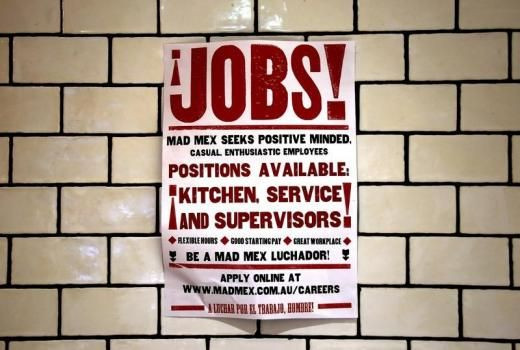Increased job opportunities in Australia amid rush to hire workers before Christmas

The number of job advertisements jumped in October amid the end-of-year rush to employ new workers. There was an overall 16.1 percent rise in new job ads recorded last month compared to the same month last year, according to SEEK data.
The mining industry, resources and energy sector saw the largest increase in job ads year-to-year, with 59 percent more ads in 2017. Services and trades had the greatest number of job ads listed.
The number of ads jumped in all but one sector last month. The only one in 29 industries grouped by SEEK not to see an increase in October is advertising, jobs and media.
SEEK Australia and New Zealand managing director Michael Ilczynski delivered the news, saying Christmas had come early for job seekers. Employers were keen to hire new people ahead of the Christmas season and New Year.
Ilczynski has also confirmed that job ads in SEEK are booming. October saw the largest rate of annual job ads growth in 2017.
“Nationally, for a second consecutive month, the trades and services industry offered the most job opportunities on SEEK, followed by information and communications technology, healthcare and medical, and manufacturing, transport and logistics industries,” he said, according to News.com.au. Of all states and territories, SA had the largest annual growth, up 24.5 percent.
Ilczynski said services and trades offered the most job opportunities across SA. Job ads for the industry were up by a solid 62 percent year-on-year.
The Western Australian labour market recorded 19.2 percent year-on-year growth this October, although it is still recovering. Trades and services, mining, resources and energy offer the most job opportunities across the state.
New South Wales recorded the lowest annual growth at 12.4 percent. It remained significantly higher last month compared to the same month last year.
Meanwhile, a report released by UNSW Sydney and UTS shows that a third of international students and backpackers are paid half the legal minimum wage. Up to 112 respondents have revealed they had been asked to pay back their employer in cash after receiving their wages.
Some respondents said they had their passports confiscated by employers. The findings also show that 173 respondents were forced to pay upfront “deposits” of up to $1,000 to secure a job in Australia. The study raised concerns regarding the actions and resourcing required of government, business and other service providers to tackle the scale of noncompliance.
Entrepreneur/YouTube





















